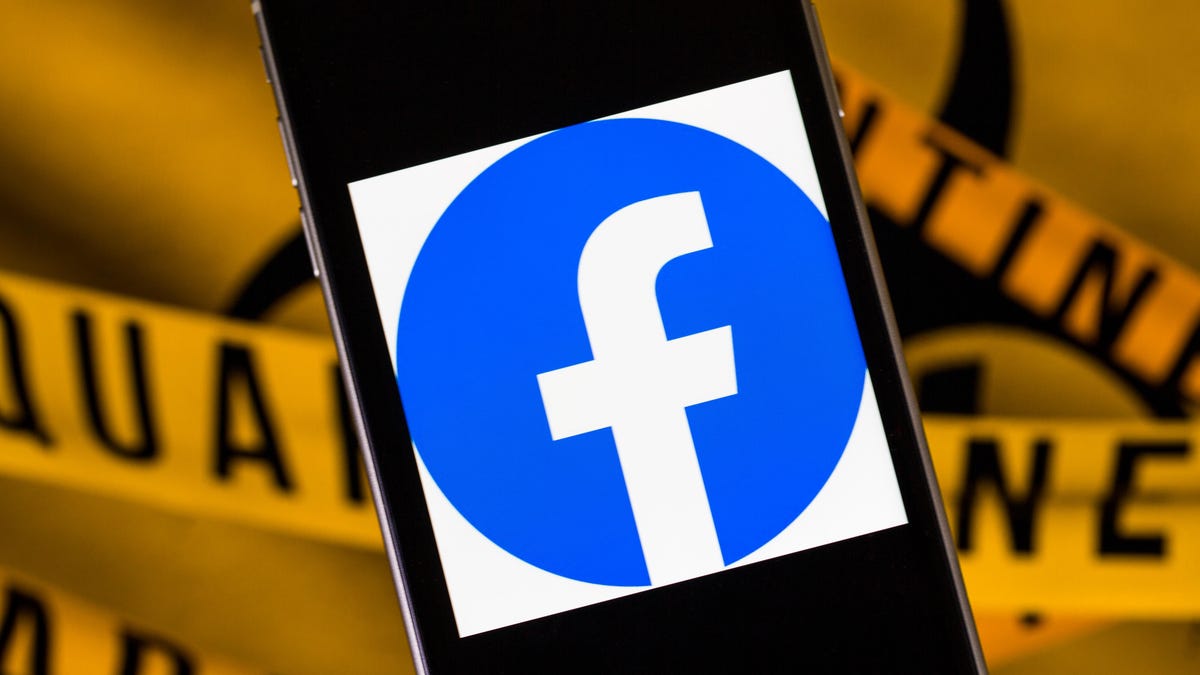Facebook releases Quiet Mode so you can take a break from social media
Social media addicts, rejoice.

Facebook has new tools to limit your time on the social network.
Facebook users who are spending more time on the social network as they stay at home to help slow the spread of the novel coronavirus now have a new tool to limit their use of the app. On Thursday, the company released a feature called Quiet Mode, which mutes notifications and lets you schedule a social media break.
The tool showcases how Facebook is trying to tackle the potential drawbacks of social media as more people turn to the site while social distancing. Studies have shown that social media use can fuel mental health problems such as anxiety and depression, especially among teens. Even Facebook has acknowledged that social media can be bad if people are passively consuming content rather than using sites to interact with others. The company has also been testing other features, including a way to hide how many "likes" a post receives on Facebook and Instagram.
Facebook's new Quiet Mode will show you how much time you have left before your social media break ends.
To access Quiet Mode, you go to your settings menu on Facebook and click Your Time on Facebook. Then you go to Manage your time, where you can schedule Quiet Mode for a certain amount of time or use it immediately. If you try to access the app, it'll display how much time is left before your break ends, but the tool also gives you the option to use Facebook for 15 minutes. The social network is rolling out Quiet Mode globally, but it's currently available only on the iPhone. Facebook is also working on an Android version that's scheduled to be released in May.
The company first released a tool called Your Time on Facebook in 2018. Quiet Mode is another update. Facebook is displaying new data within the tool, including how many times you opened the app within the last week, how your usage compares to the same time last week and daytime versus nighttime usage.
Outside of these new tools, Facebook said it's donating $2 million to support organizations such as Vibrant Emotional Health, which operates the National Suicide Prevention Lifeline in the US; Kids Help Phone in Canada; and Centro de Valorização da Vida in Brazil.
The company is sharing World Health Organization self-care tips for relieving stress and staying active. Facebook-owned Instagram introduced a new live series from Netflix's account, called Wanna Talk About It? in which celebrities discuss mental health issues with experts from groups such as the American Foundation for Suicide Prevention, NAMI and The Trevor Project. Instagram has a "pause all" feature in its settings that'll also mute notifications.
Facebook COO Sheryl Sandberg also spoke with Dr. Julianne Holt-Lunstad, a psychologist at Brigham Young University who has researched loneliness, about mental health on Thursday.
In a Facebook Live video, Holt-Lunstad said loneliness can increase the risk of dying early and it's also normal to crave socialization during a time of social distancing.
"Just like hunger is a motive to seek out food and thirst is this motive to seek water," she said, "loneliness is this motive to reconnect."
Despite the risks to mental health, the psychologist encouraged people to social distance to slow the spread of COVID-19, the respiratory disease caused by the coronavirus. The impact of loneliness is chronic and happens over a long period of time, she said, while COVID-19 is an imminent threat. She added that she would "hate" for anyone to use her research on loneliness to justify not social distancing.
Holt-Lunstad and Sandberg also went through tips for coping with loneliness. That included talking to your neighbors from your porch at a distance of at least six feet, video chatting and expressing gratitude.
Sandberg said she considers herself a grateful person but the pandemic also makes her think about being thankful for activities such as being able to go to a restaurant or hug a friend before the shelter-in-place orders went into effect.
"When we are able to do that I think we will have that just deeper appreciation," she said.

